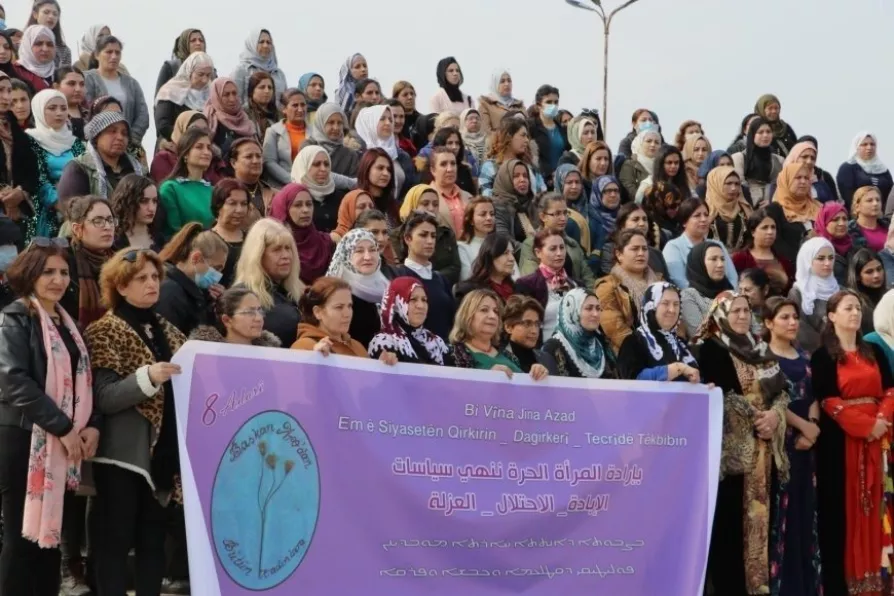A vast US war fleet deployed in the south Caribbean — ostensibly to fight drug-trafficking but widely seen as a push for violent regime change — has sparked international condemnation and bipartisan resistance in the US itself. FRANCISCO DOMINGUEZ reports

 A joint declaration on March 8
[Kongra Star]
A joint declaration on March 8
[Kongra Star]
IN 2011, the winds of the Arab Spring blew into Syria and protests against the regime of the Ba’ath Party led by Bashar al-Assad gave rise to a civil war that continues to this day under the influence of a wide variety of political forces.
In north-east Syria, also known as “Rojava” (the Kurdish name for Western Kurdistan), the Syrian state largely withdrew after the people’s uprising in 2012. The majority Kurdish population in the region took the initiative and began to establish self-administration based on communes and councils and empowerment of women.
From the beginning of the revolution, women organised themselves independently, set up their communes and councils, participated in all political decisions and implemented a co-chair-system and gender quotas in all institutions, as well as women’s and family laws. A women’s revolution began in Rojava.













